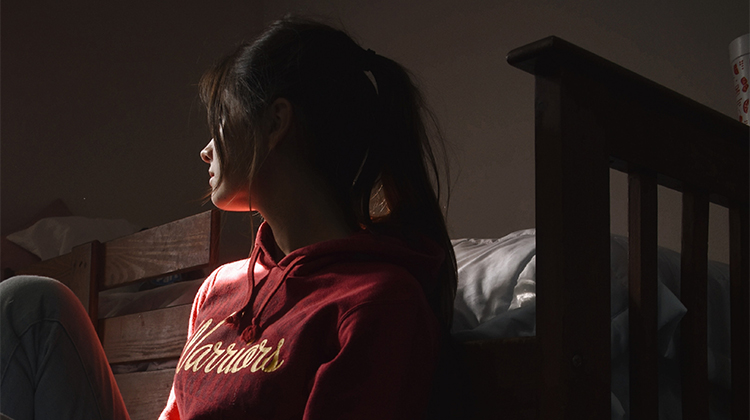Fifteen minutes with an online mentor can save a school life

Just 15 minutes of support each week online can make a positive difference to an at risk child’s school career.
ACU’s Institute for Positive Psychology and Education Professor Joseph Ciarrochi (pron: chair-ro-key) was lead researcher for projectHOPE, a program which successfully re-engaged at-risk youth with their schooling.
Professor Ciarrochi, who struggled with his own high school years, has called for increased funding to make projectHOPE available to at-risk students across Australia.
The project saw 49 at-risk high school students, from nine New South Wales’ schools, receive a 15-minute online mentoring session from qualified mentors, once a week.
“One in four Australian youth are struggling with some emotional distress and school students report they receive limited support from their teachers, peers, or parents,” Professor Ciarrochi said.
“What we discovered through projectHOPE was distressed teens needed only 15 minutes of mentoring per week from a caring adult, and this small commitment improved the teens’ happiness and overall school engagement.
“You don’t need to spend a lot of time or money to help young people. Just 15 minutes on a computer chatting with a caring adult mentor. That is enough support for a lot of young people.”
The findings are significant because recent data suggests a staggering 26 per cent of Australian youth do not attain a Year 12 or Certificate III equivalent by age 19.
“With this project, in just 15 minutes, we gave young people hope, helped them problem-solve difficult situations at school, and helped them to see the benefits of an education,” Professor Ciarrochi said.
“We learned that if a young person can talk with a supportive adult, it can change their life.
“What was equally surprising was that we didn’t have to mentor in-person, to achieve the important improvements to student behaviours. This meant we didn’t have to spend time and money travelling to the school and returning to the university.
“We could access the young people online and provide them with support in cities and in remote and rural areas. I would estimate the online delivery model reduced the expense of the program by a considerable 75 per cent.”
Professor Ciarrochi revealed, “I was bullied during high school and ate lunch alone. I wish I could travel back in time and help my younger self how to manage difficult people. I would also help my younger self to engage in school, because ultimately the schoolwork was for me and not for my teachers. I would tell myself that things were going to be alright, that if I just stayed focused on the things I cared about, the bad stuff would pass.”
“This project is my way of going back in time, and helping at-risk teens re-engage with school and avoid an unhappy adolescence.”
Originally designed as a face-to-face project based on the University of Minnesota’s Check & Connect, ACU’s projectHOPE evolved to an online model during the COVID-19 lockdowns.
The project acknowledges funding support from the Australian Research Foundation (LP160100332) and the Bill Crews Foundation.
The projectHOPE study is available here.
Photo by Sofia Alejandra from Pexels